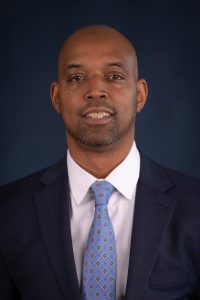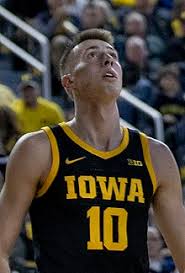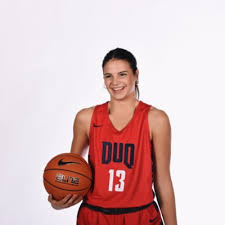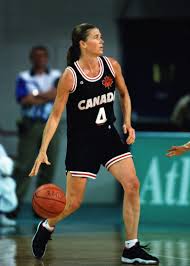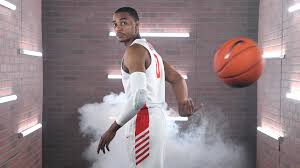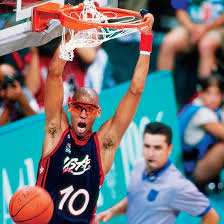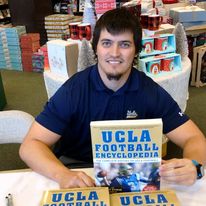CLICK HERE for all of Hoops HD’s Continued and Extensive Preseason Content
We hope you are ready for a season unlike any other: testing, distancing, and bubbles, oh my! Nobody knows exactly what is going to happen, when it is going to happen, or whether anything actually will happen…but in the meantime we will try to restore some order with season previews featuring the best players/coaches/administrators in the country. We continue our coverage with Creighton assistant coach Terrence Rencher. He set the Texas record for most career PTS, played pro basketball for more than a decade, and then got into coaching. HoopsHD’s Jon Teitel got to chat with Coach Rencher about getting drafted in 1995 and his expectations for this year.
You were born/raised in the Bronx: what made you choose Texas for college? The Big East schools that I was interested in going to were not recruiting me so I felt like I wanted to try something different. Texas was 1 of the outliers but I just took a visit: I had a gut feeling that it was a good place and it worked out for me. It was just about doing/experiencing something different.
In 1992 you scored 19.1 PPG and were named conference ROY: how were you able to come in and contribute right from the start? As a kid I watched nothing but college basketball and was an NBA fan too. I always visualized becoming a college player. I come from a very very good high school program with an outstanding coach. Everything we did was like college so when I finally got to college I felt prepared by my high school coach thanks to the way that he ran our program.
You remain the all-time leader in school history in PTS/STL: how did you balance your offense with your defense, and do you think that anyone will ever break your records? We played fast and pressed: we were kind of like Havoc before Havoc. A lot of our offense was created off of our defense. I am not saying this to be sarcastic…but the way the game is now and what good players are trying to do once they get to college, I do not think that anyone will stay in school long enough and be productive enough to break my records. I have been safe for 25 years and am hoping for another 25!
In the summer of 1995 you were drafted 32nd overall by Washington (11 spots behind Michael Finley): did you see that as a validation of your college career, or the realization of a lifelong dream of reaching the NBA, or other? It was more of a validation of my college career. Guys were not leaving early as much (besides stars like Shaquille O’Neal/Penny Hardaway/Alonzo Mourning) and were doing multiple years in college. I was productive in college against high-level players. The NBA was like a bonus: I just wanted to be a great college player and enjoy that experience, but obviously having the opportunity to hear your name called and go down in the books as an NBA player was a lifelong dream.
You played pro basketball in the US/overseas for more than a decade: what was the biggest difference between basketball in the US vs. basketball in other countries? In the US we are gamers: everyone loves game day and the bright lights and putting your talents on display in that arena. In Europe it was quite the opposite: everything is based on skill development, practicing twice/day, and really digging into the process of becoming a good player. There are big games over there as well and everyone enjoys competing but the culture of the game is more about the practice gym than game time.
You work for Coach Greg McDermott: what makes him such a good coach, and what is the most important thing that you have learned from him so far? It is hard to pinpoint 1 thing: his years of experience, the high level he has worked at, the players he has coached, and so many different elements. 1 thing I have learned thus far is his ability to just stay calm and allow guys to be themselves. There were some games last year we lost and myself and some of our other coaches were pretty hot and steaming a bit, but Coach was very composed with his message and our guys responded to it. I have worked for many different guys with different personalities and the majority of college coaches are “rah rah” guys, especially when things are not going right, but you are what you become accustomed to. I was used to intense coaches but he just showed me that poise and not “majoring in the minors” is a big deal and very effective. There are so many different ways to be successful.
You were preparing to play in the Big East tourney last March when you learned that the entire postseason was canceled due to the coronavirus: what was your reaction when you 1st heard the news, and do you think that it was the right decision? I was extremely disappointed for a number of reasons. Our guys had worked hard all year and had the opportunity to make a mark for both our program and themselves so it was tough to deal with. To get a chance to go home to Madison Square Garden and play in the Big East tourney was great…and then to have it snatched away was very disappointing. At 1st I thought they might have been jumping the gun because nobody was educated on the situation, but as time has gone by and you get more educated on the effects of COVID I think it was absolutely the right decision to shut the tourney down.
You lost Kelvin Jones to graduation and Ty-Shon Alexander to the draft but return almost everybody else on the roster: how crucial is all of that experience going to be to your team’s success this year? Due to the unique circumstances that we have been thrust into with no summer and a limited fall on the court with our guys, I think it is big to have an experienced core returning. We have some new pieces to inject into the puzzle but the lack of teams being able to practice and being together over the summer could be a benefit to us due to our veteran core. It will be a fluid season in a different kind of way but we have the experience/maturity to deal with some of these funky times that we are about to run into.
What is it like to be an African-American man in 2020? I was born in 1973 and it feels the same way to me every year. From the outside looking in, the injustices are more prevalent/plain to see for people outside our culture but for me nothing has really changed. I still live by the same codes/principles that I always have and am still very vigilant based on my experiences as an African-American man.
What are your goals for this season, and what are your expectations for this season? I want to defend our title: it would be great to be back-to-back regular season champs! I want our guys to have a chance to experience March Madness and make a run. It will sound corny/cheesy but I talked to myself all last year about living in the moment and enjoying everything and not taking anything for granted, which was fulfilling. I want to enjoy our seniors and appreciate their contributions and help them have big years on the way out. I just expect us to build on what we accomplished last season.

